Hadeel Al-Negheimish
Towards preserving word order importance through Forced Invalidation
Apr 11, 2023
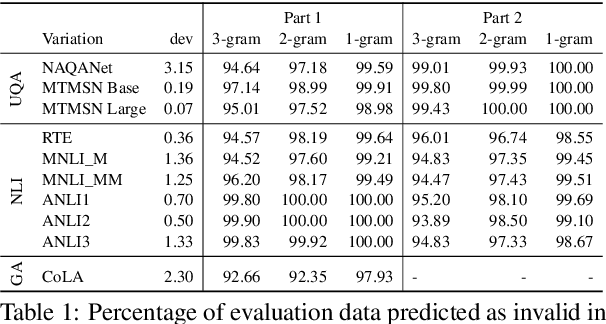
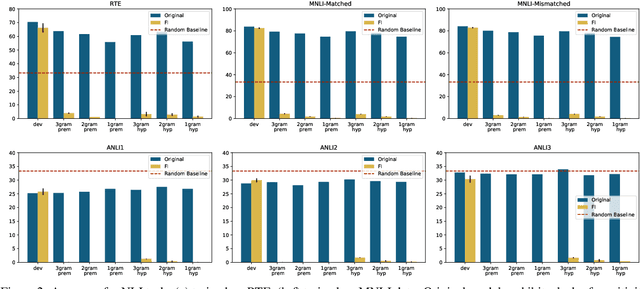

Abstract:Large pre-trained language models such as BERT have been widely used as a framework for natural language understanding (NLU) tasks. However, recent findings have revealed that pre-trained language models are insensitive to word order. The performance on NLU tasks remains unchanged even after randomly permuting the word of a sentence, where crucial syntactic information is destroyed. To help preserve the importance of word order, we propose a simple approach called Forced Invalidation (FI): forcing the model to identify permuted sequences as invalid samples. We perform an extensive evaluation of our approach on various English NLU and QA based tasks over BERT-based and attention-based models over word embeddings. Our experiments demonstrate that Forced Invalidation significantly improves the sensitivity of the models to word order.
Numerical reasoning in machine reading comprehension tasks: are we there yet?
Sep 16, 2021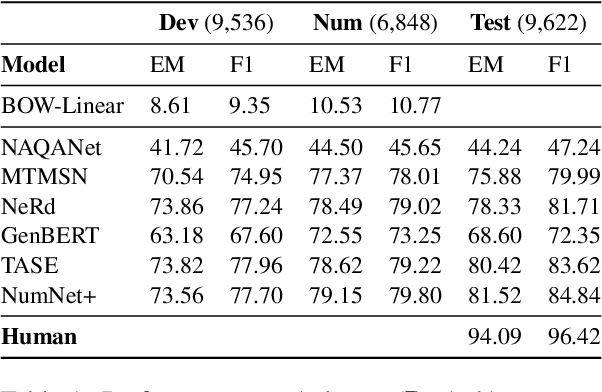
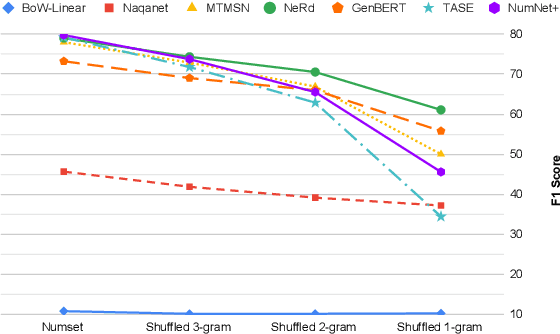
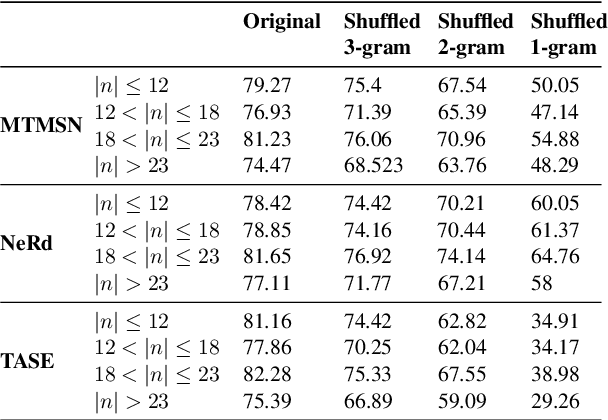
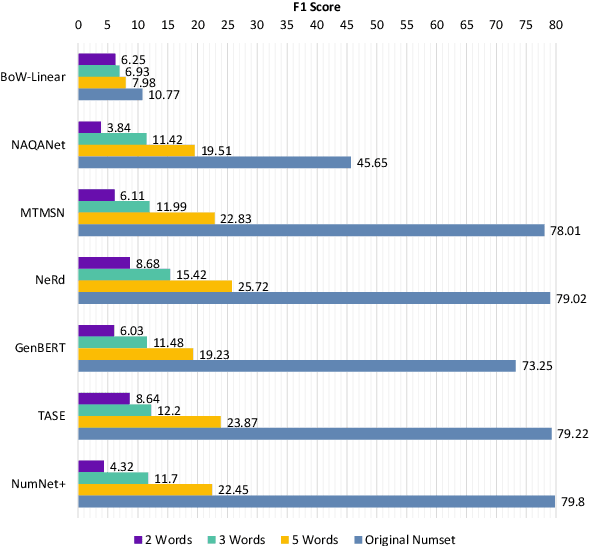
Abstract:Numerical reasoning based machine reading comprehension is a task that involves reading comprehension along with using arithmetic operations such as addition, subtraction, sorting, and counting. The DROP benchmark (Dua et al., 2019) is a recent dataset that has inspired the design of NLP models aimed at solving this task. The current standings of these models in the DROP leaderboard, over standard metrics, suggest that the models have achieved near-human performance. However, does this mean that these models have learned to reason? In this paper, we present a controlled study on some of the top-performing model architectures for the task of numerical reasoning. Our observations suggest that the standard metrics are incapable of measuring progress towards such tasks.
Discrete Reasoning Templates for Natural Language Understanding
Apr 05, 2021



Abstract:Reasoning about information from multiple parts of a passage to derive an answer is an open challenge for reading-comprehension models. In this paper, we present an approach that reasons about complex questions by decomposing them to simpler subquestions that can take advantage of single-span extraction reading-comprehension models, and derives the final answer according to instructions in a predefined reasoning template. We focus on subtraction-based arithmetic questions and evaluate our approach on a subset of the DROP dataset. We show that our approach is competitive with the state-of-the-art while being interpretable and requires little supervision
 Add to Chrome
Add to Chrome Add to Firefox
Add to Firefox Add to Edge
Add to Edge